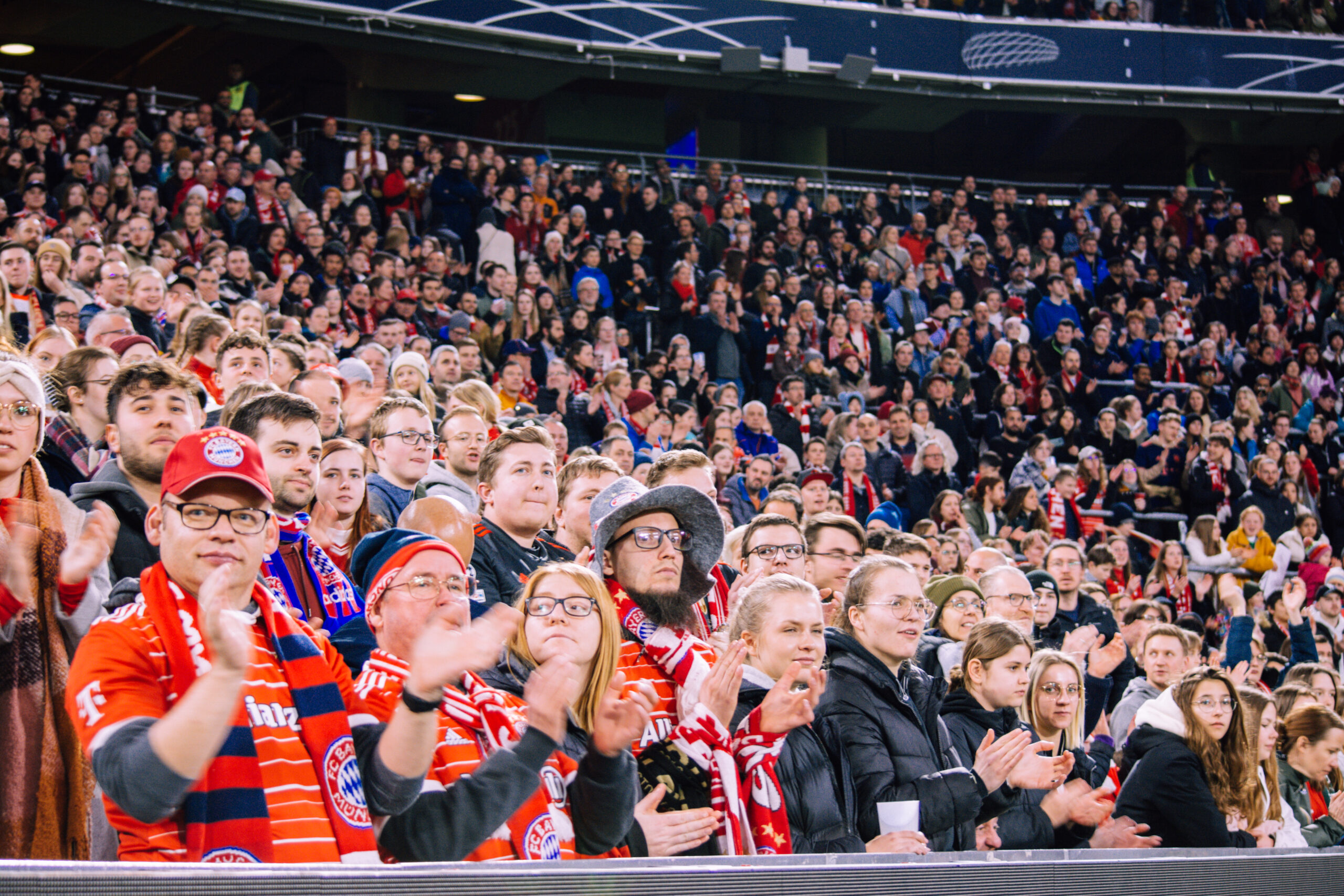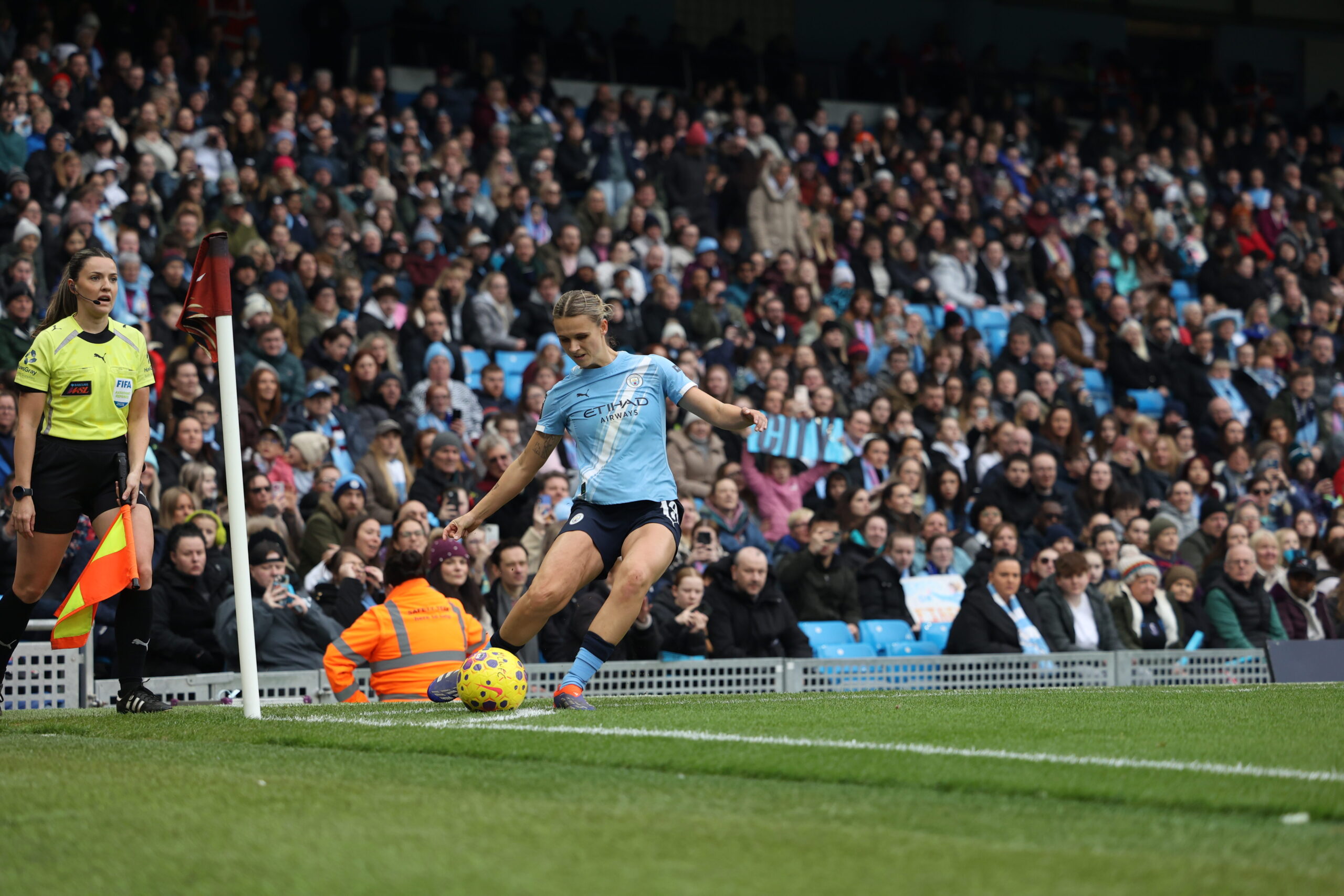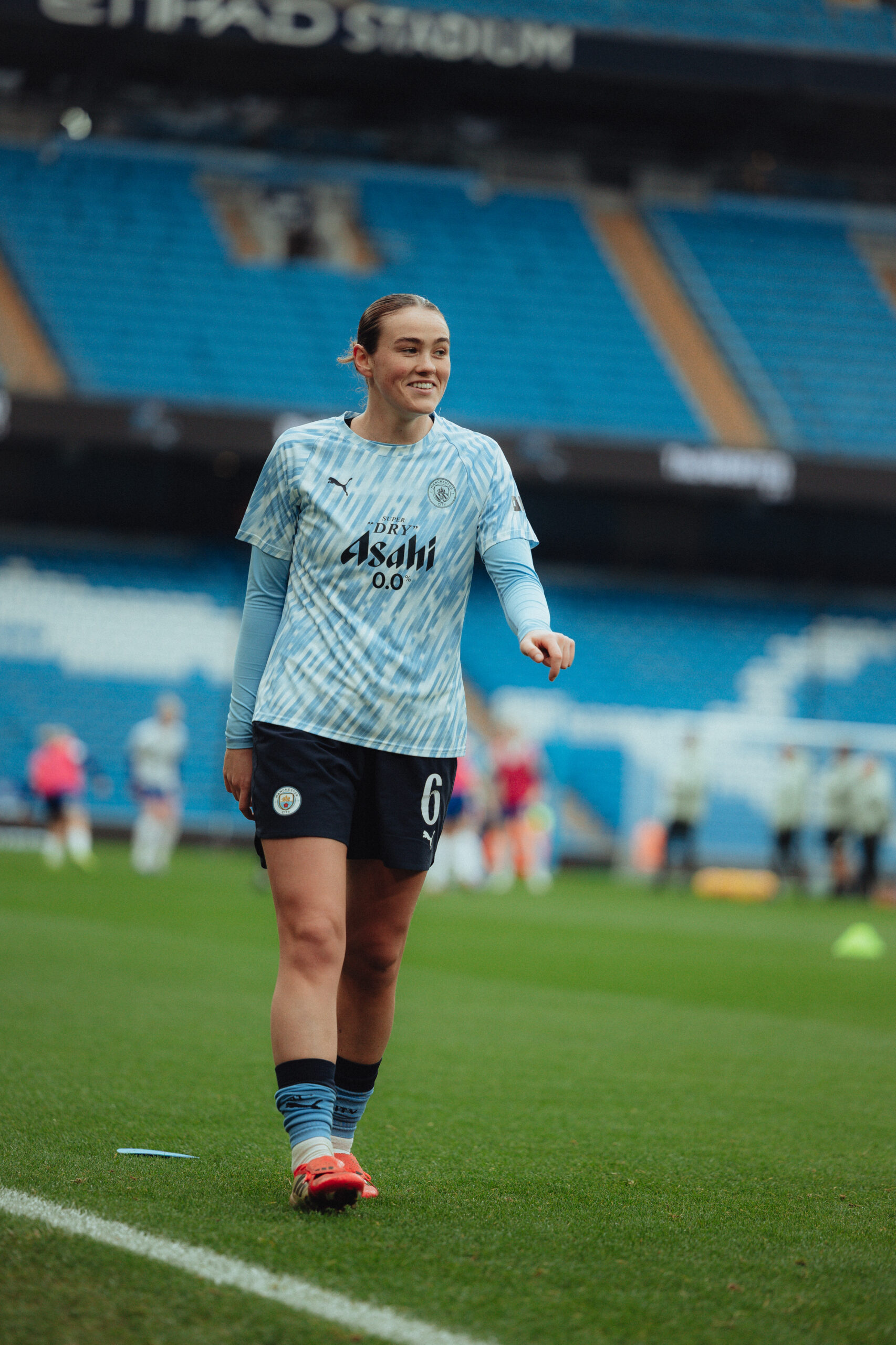History was made for women’s football in Germany on 6th September 2025 when over 57,000 spectators attended the Frauen-Bundesliga season opener between FC Bayern Munich and Bayer Leverkusen at the Allianz Arena. This shattered the previous German domestic record of 38,365 (set in 2023) and more than doubled Bayern Women’s previous club record of 24,000, achieved during a 2022 Champions League match against Barcelona.
This milestone reflects the rapid growth of interest in women’s football in Germany. With increased visibility, historic attendances, and growing fan engagement, Bayern Munich is determined to maintain momentum on and off the pitch.
The Rise of The Frauen Bundesliga: A Growing Legacy
Germany’s rise in women’s football has been remarkable. The Frauen-Bundesliga, founded in the 1970s, is the top level of women’s football in the country. Originally established in 1970 as a single division of eight teams, it was initially split into two regional divisions with a small national playoff at the end. By 1972, a second division was added, with the first nationwide professional club competition held in 1974–75, won by club Turbine Potsdam.
Since then, Germany has become a powerhouse in women’s football, producing world-class talent and dominating international competitions, including multiple UEFA Women’s European Championships and FIFA Women’s World Cups.
Fan Engagement and Market Potential
Recently, the Frauen-Bundesliga has been experiencing strong growth.
Attendance figures are rising, major sponsorships such as Google Pixel have invested in the league, with the league expanding to 14 teams starting in the 2025/26 season. The decision by the German Football Association (DFB) to increase the number of teams enhances competitiveness, offering more matches, a greater variety of opponents, and opportunities for clubs from lower tiers to showcase their talent on a bigger stage.
Germany’s success in women’s football is not just measured in trophies but also in the growing support at home.
A DFB study with sports organisation Two Circles found half of those interested in football were following the men’s and women’s game, with 19 million fans showing a particular high level of interest and awareness of women’s football. There was a 277% increase in spectator numbers in the Frauen-Bundesliga, according to sporting outlet sportfive.co.uk taking just nine days to break the old record.
According to the DFB, interest in women’s football in Germany been at a high level, with 18.4 million people playing the game from the age of 14 upwards. Women are securing their place more and more in the voluntary bodies of associations and clubs as well as the professional fields of football. Growing interest in women’s football is driving fan engagement and investment, creating significant potential for economic growth.
Sponsorship and Media Visibility
Germany’s strong following indicates a robust market for sponsorships, media rights, and the growth of women’s football. In the 2023–24 season, Google Pixel acquired the naming rights to the Women’s Bundesliga in a four-year deal and became a sponsor of the national team.
The partnership aimed to increase the visibility of women’s football through digital and social media campaigns, behind-the-scenes content, and support for the Frauen-Bundesliga and the national team. It also granted Google Pixel extensive digital rights to create content, feature players in national campaigns, and engage supporters.
The partnership supported the German Football Association’s (DFB) FF27 strategy, which aims to provide equal access to football for women and girls while increasing the sport’s visibility and appeal. The digital sport company Sportsdigital Fussball recently bought the broadcasting rights to the English leagues, bringing the likes of the Women’s Super League (WSL 1 and 2) and the Cup season to a new audience in Germany via channel Magenta Sport.
This expansion of the WSL’s global reach, with 13 new international media rights partners for the 2025/26 season, offers more fans worldwide, including in Germany, access to the top-tier women’s competition.The acquisition of media rights by Sportdigital increases the visibility of the Women’s Super League (WSL), highlighting its growing international profile and providing a platform for further growth.
The recent European Championship in Switzerland has also emphasised the quality and significance of women’s football. The allocation of media rights for this season is expected to lead to significantly improved coverage of the Bundesliga and support further professionalisation of the sport.Increased visibility of women’s sports drives greater sponsor interest, which in turn helps reduce the pay gap and supports long-term growth.
Grassroots Development and Youth Investment
The DFB has invested heavily in youth and grassroots initiatives.
Programmes such as Women in Football (Frauen im Fußball), Project Future, and Amateur Football Futures aim to strengthen structures, raise public awareness, promote top talent, and create pathways from grassroots to professional levels. According to a 2013 UEFA study, 15% of players in Germany’s top five leagues were homegrown, with 96% of them eligible to play—a testament to the DFB’s long-term investment in youth development.
The DFB’s commitment to both grassroots and elite-level football is further reflected in initiatives such as the Project Future and the Amateur Football Futures, which have helped create a sustainable framework for women’s and girls’ football in Germany
Addressing Challenges and Social Impact
Despite this growth, challenges remain. Traditional gender stereotypes, limited infrastructure, and the lack of female role models continue to hinder participation.
Women are also underrepresented within the DFB itself, with 21% of women on the committee, 15% in the commission and 21% in full time management positions. In response, the German women’s national team pledged at the start of the 2023 World Cup to donate 1% of their tournament prize money to grassroots initiatives for girls and non-binary players.
Collaborating with the non-profit organisation Common Goal, the team has supported grassroots projects such as Futbalo Girls and Girl Power to advocate for equal participation in football for individuals from all social and cultural backgrounds.
Through these efforts, Die Nationalelf aims to create a broader social impact beyond their on-field achievements. Players such as Svenja Huth and Lena Oberdorf highlighted the importance of inspiring the next generation, acting as role models, and using their platform to champion diversity and opportunity in sport.
To achieve long term growth in the project, sports giant Adidas contributed 1% of global sales from the 2023 World Cup ball to gender equity projects. DFB initiatives remain dedicated to fostering equality and creating more inclusive environments, ensuring that opportunities for women in football continue to expand across Germany.
In 2024, the proportion of women on the DFB’s committee and full-time management levels increased by 30%, with the number of active players, coaches and referees up to 25%.
Looking Ahead: A Flourishing Women’s Game
The Allianz Arena attendance record is a visible testament to the country’s flourishing women’s game—a sport that has come a long way from its modest beginnings and now commands national attention and pride.
With growing media coverage, professionalization, fan support, and sponsorship, the Frauen-Bundesliga is well-positioned for continued growth and long-term impact.
https://sportfive.co.uk/beyond-the-match/insights/the-rise-of-women-s-football-in-germany
https://www.insideworldfootball.com/2023/05/26/google-becomes-official-sponsor-german-womens-team
https://library.olympics.com/Default/webFramePopup.aspx?portalId=151&frameId=1325



